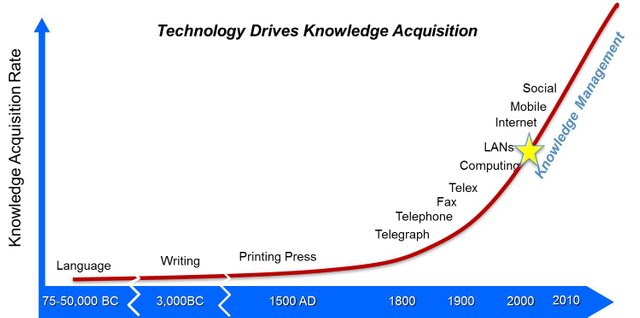What is the Knowledge Acquisition Bottleneck problem?

Now that we know what knowledge representation is, and what knowledge bases are, and how the knowledge base is relied upon in a knowledge based system of artificial intelligence (KR+KB+Inference engine), we can move on to discussing one of the open problems.
The Knowledge Acquisition Bottleneck problem
Many people already know about the familiar Byzantines generals problem in computer science. We also know how the Nakamoto consensus in Bitcoin provided a novel example of a solution. The Knowledge Acquisition Bottleneck problem is one of the problems plaguing AI and is what limits or seems to be a limit on the strength of artificial intelligence. One of the main problems in artificial intelligence is that knowledge formation typically requires domain experts who can contribute to the knowledge base. The Cyc project attempted to solve the problem of scaling up the knowledge base but is suffering from the bottleneck. The bottleneck can be summarized below [taken from Wagner, 2006]:
- Narrow bandwidth. The channels that exist
to convert organizational knowledge from
its source (either experts, documents, or
transactions) are relatively narrow. - Acquisition latency. The slow speed of acquisition
frequently is accompanied by a delay
between the time when knowledge (or
the underlying data) is created and when
the acquired knowledge becomes available
to be shared. - Knowledge inaccuracy. Experts make mistakes
and so do data mining technologies
(finding spurious relationships). Furthermore,
maintenance can introduce inaccuracies
or inconsistencies into previously correct
knowledge bases. - Maintenance trap. As the knowledge in the
knowledge base grows, so does the requirement
for maintenance. Furthermore, previous
updates that were made with insufficient
care and foresight (“hacks”) will accumulate
and render future maintenance increasingly
more difficult (Land, 2002).
The paper from which this summary was pulled "Breaking the Knowledge Acquisition Bottleneck Through Conversational Knowledge Management" also offers a solution called collaborative conversational knowledge management. This is the same solution which Tauchain will attempt to utilize in a more sophisticated way. Tauchain will allow for collaborative theory formation. In the paper this quote explains a key concept:
Collaborative knowledge
management means that many people work together
to create or acquire knowledge instead
of a few individual experts. In other words, a
community (of practice) will jointly create and
maintain the knowledge.
We see this concept in how Wikipedia works to manage knowledge. We know Wikipedia is indeed not without flaws but it does manage knowledge. In their conclusion we see this quote:
The challenge of capturing and maintaining
exponentially growing volumes of knowledge
requires new ways of knowledge acquisition;
namely, on approaches that rely on the
contributions of many rather than the expertise
of a few. Wiki technology and the wiki way of
collaboration show a feasible model for knowledge
acquisition and maintenance.
Tauchain may provide a solution to the Knowledge Acquisition Bottleneck problem
Tauchain by design will be collaborative and allow for collaborative theory formation. This would mean anyone will be able to contribute to the knowledge base with relative ease. In addition, it will have knowledge management properties built in, and if the knowledge acquisition bottleneck problem can be solved then it will have a huge impact. For one, the problems which prevent knowledge based AI from scaling could be resolved if this bottleneck is removed.
Conclusion
DARPA has attempted to solve the Knowledge Acquisition Bottleneck problem utilizing high performance knowledge bases (HPKBs)and Rapid Knowledge Formation yet failed. Cyc has attempted to solve the same problem and has failed. The semantic web has yet to take off because this problem stands in the way. Will Tauchain succeed where these other attempts have failed? I think it is a strong possibility which is why I'm excited about the implications should Tauchain successfully be built.
References
Lenat, D. B., Prakash, M., & Shepherd, M. (1985). CYC: Using common sense knowledge to overcome brittleness and knowledge acquisition bottlenecks. AI magazine, 6(4), 65.
Wagner, C. (2006). Breaking the Knowledge Acquisition Bottleneck Through Conversational Knowledge Management. Information Resources Management Journal, 19(1), 70-83.
Web 1. https://www.quora.com/What-is-knowledge-acquisition-bottleneck
Web 2. http://www.igi-global.com/dictionary/knowledge-acquisition-bottleneck/49991
Web 3: http://www.tauchain.org
Web 4: https://steemit.com/tauchain/@dana-edwards/how-to-become-a-stakeholder-in-agoras-and-indirectly-tauchain
Amazing subject. Excellent post. Thanks.